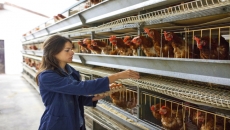The spring runoff and an "unprecedented" drop in the demand for electricity because of COVID-19 is forcing BC Hydro to shut down some of its operations and spill water from its dams.
The utility says electricity demand in British Columbia is estimated to be down nearly 10 per cent, more than double the decline following the 2008 recession.
BC Hydro says in a report released Monday the spring freshet is creating surplus energy and its independent power producers are also putting out their greatest amount of electricity, about 29 per cent of total generation.
A normal surplus of power would go to BC Hydro's trading arm Powerex to export, but the report says the pandemic has also reduced the need for power most other jurisdictions. It says that lack of demand puts "upward pressure on future rates to ensure BC Hydro recovers its costs."
However, the utility says it's in a strong position financially that will allow it to manage through the pandemic. The report says it needs to address the problem now because prolonged spills over its dams could create environment risks downstream and impacts to BC Hydro's infrastructure.
Its plans include shutting down some of its smaller plants, spilling water over some dams, exporting electricity to other jurisdictions and reducing generation from some of its independent power producers. The demand for power from the commercial and light industrial sectors dropped between March and April by around 20 per cent.
The business sectors with the biggest declines are forestry, recreation, restaurants, hotels and offices, the report says. "With more British Columbians at home, residential energy demand initially increased by around seven per cent in late March compared with last year. However residential demand has since flattened to be at or near normal levels of previous years," it says.
A study by the International Energy Agency found lockdown measures have led to a decline in daily electricity demand globally by about 15 per cent. The report says this time of year is especially challenging for BC Hydro as spring runoff fills reservoirs and people turn off their heating systems, creating less demand.
"This means less water is being moved out of its reservoirs to generate power while snowmelt is bringing the highest inflows into its system."
The risks of releasing too much water include possible flooding downstream, there could be damage at the facility itself, such as erosion of the spillway, and fish could die if high volumes of water are released.






